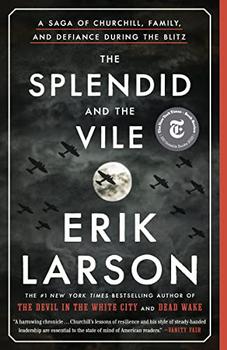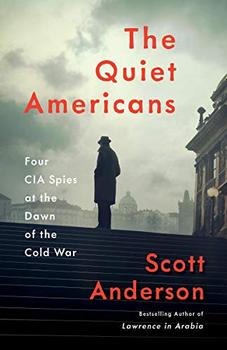Summary | Excerpt | Reviews | Beyond the book | Read-Alikes | Genres & Themes | Author Bio

Kim Philby and the Great Betrayal
by Ben MacintyreKim Philby (1912-1988) was a highly ranked member of the British Secret Intelligent Service (the SIS, aka MI6) who at one time was responsible for all covert operations against the USSR and later for MI6's collaboration with the United States' CIA in their espionage work against the Soviets. Throughout his 30-year career he was also a spy for Moscow. In A Spy among Friends, Ben MacIntyre details Philby's exploits and betrayals and elucidates exactly why he was able to get away with his activities for so long.
Many books have covered Philby and the rest of the "Cambridge Five," a spy ring active during and after WWII, that was comprised of British natives who had attained high-ranking jobs in the government. What makes MacIntyre's entry unique is his concentration on Philby's close friendships that enabled him to continue acting on behalf of the USSR until his defection in 1963. The book is as much about Nicholas Elliott of MI6, James Angleton of the CIA and the "club" mentality that enabled Philby's long career as it is about his deeds; Philby's friends simply couldn't accept that an upstanding, upper-crust, Cambridge-educated Englishman cut from the same cloth as themselves could possibly be betraying them.
Interestingly, many in the British Security Service were convinced Philby was a spy after the defection of two other agents in 1951 but couldn't overcome the convictions of MI6 that Philby was merely guilty of unfortunate friendships. The author's insight and vast experience researching Britain's intelligence community allow him to speculate that cultural divisions between the two agencies exacerbated the situation. According to MacIntyre, "MI6 was upper-middle class (and sometimes aristocratic); MI5 was middle class (and sometimes working class)" and "the looming battle over Philby was yet another skirmish in Britain's never-ending, hard-fought, and entirely ludicrous class war."
A Spy among Friends is MacIntyre's tenth book; the seamless interweaving of source material into a compulsively readable narrative reflects the highly polished writing style the author has perfected. His constant use of quotes from interviews and official (and recently declassified) documents confirms that the material is exceptionally well-documented and based on solid fact:
Philby seemed to invite intimacy. His knowing smile, "suggestive of complicity in some private joke, conveyed an unspoken understanding of the underlying ironies of our work." He made a point of dropping in on the offices of American colleagues and counterparts in the later afternoon, knowing that his hosts would sooner or later (and usually sooner) "suggest drifting out to a friendly bar for a further round of shop talk." Trading internal information is a particular weakness of the intelligence world; spies cannot explain their work to outsiders, so they seize every opportunity to discuss it with their own kind. "Intelligence officers talk trade among themselves all the time," said one CIA officer. "Philby was privy to a hell of a lot beyond what he should have known."
MI6's trust in Philby impacted its espionage efforts; MacIntyre presents analogies that aptly describe the situation the agency found itself in. For example, he likens Philby's appointment to Section IX, the part of MI6 responsible for all cases concerning Communism or the Soviets, to a situation where "...the fox was not merely guarding the henhouse but building it, running it, assessing its strength and frailties, and planning its future construction."
The retelling of Philby's activities is so entertaining that I had to keep reminding myself I was reading a work of non-fiction and not the latest John Le Carré thriller (who, incidentally, knew the parties involved in the Philby affair and wrote an afterword). The understanding MacIntyre displays of the British intelligence community gained through his many years researching the subject adds a layer of insight that kept me riveted. Finally, his crisp and richly informative writing style makes the pages fly by and the book absorbing from start to finish.
A Spy Among Friends is an outstanding look at a fascinating chapter in the history of modern espionage. Anyone interested in the genre will want to pick up a copy of this excellent book.
![]() This review was originally published in The BookBrowse Review in August 2014, and has been updated for the
June 2015 edition.
Click here to go to this issue.
This review was originally published in The BookBrowse Review in August 2014, and has been updated for the
June 2015 edition.
Click here to go to this issue.

If you liked A Spy Among Friends, try these:

by Erik Larson
Published 2022
Winner of the 2020 BookBrowse Nonfiction Award
The #1 New York Times bestselling author of The Devil in the White City and Dead Wake delivers a fresh and compelling portrait of Winston Churchill and London during the Blitz.

by Scott Anderson
Published 2021
From the bestselling author of Lawrence in Arabia, a gripping history of the early years of the Cold War, the CIA's covert battles against communism, and the tragic consequences which still affect America and the world today.
Your guide toexceptional books
BookBrowse seeks out and recommends the best in contemporary fiction and nonfiction—books that not only engage and entertain but also deepen our understanding of ourselves and the world around us.